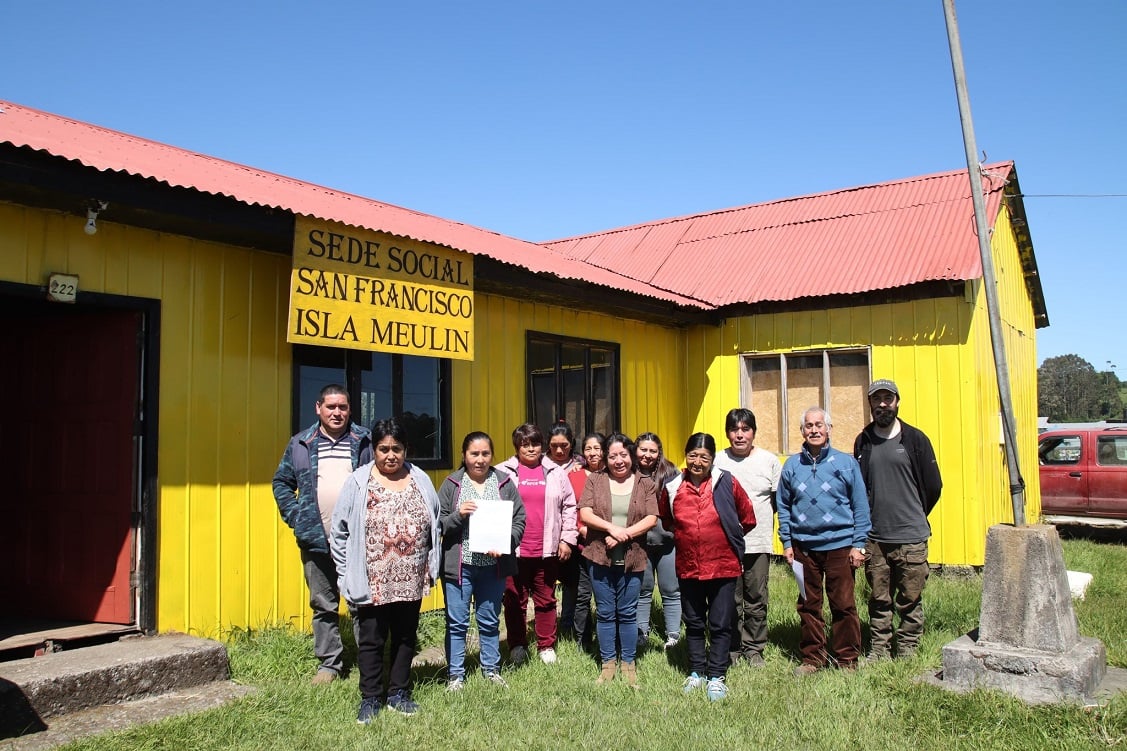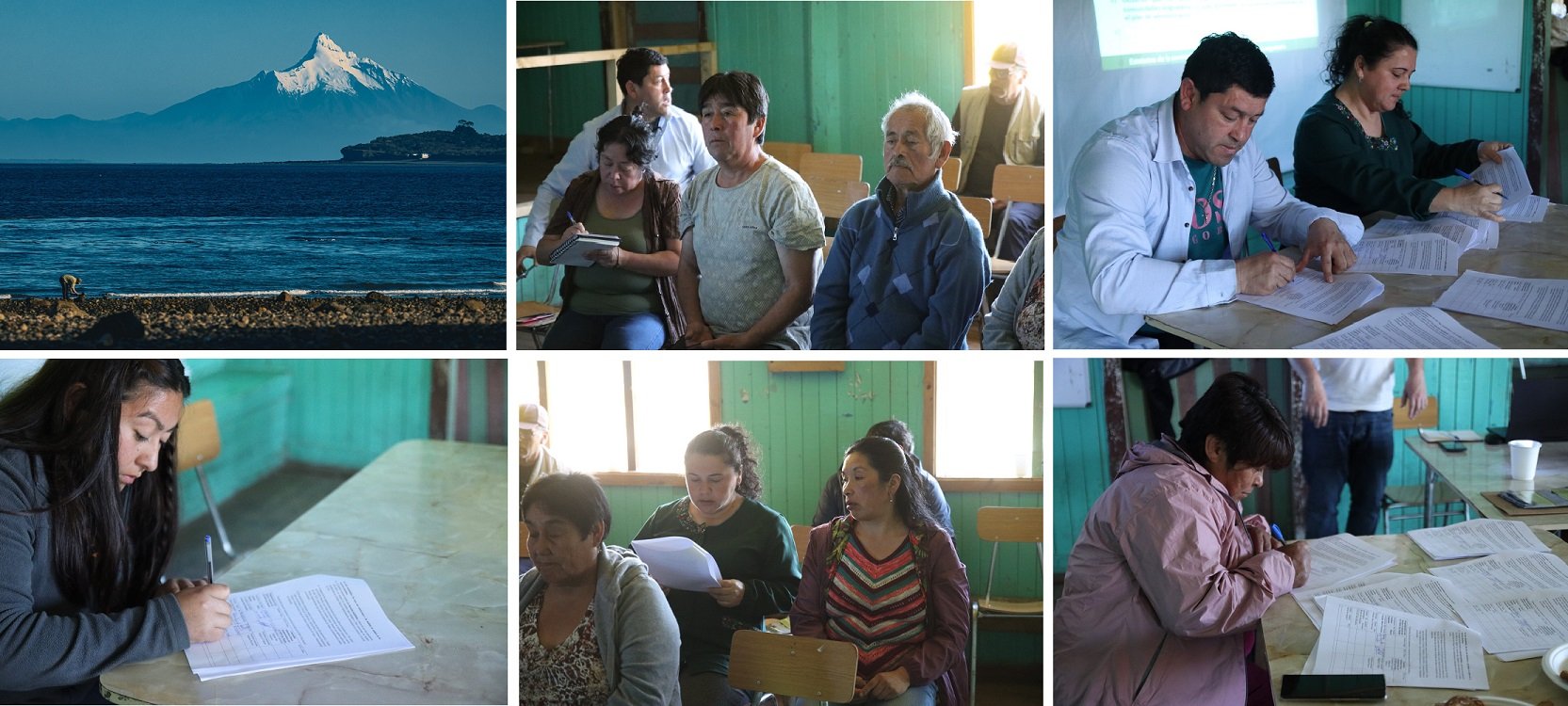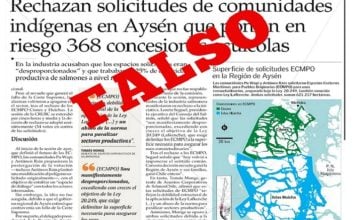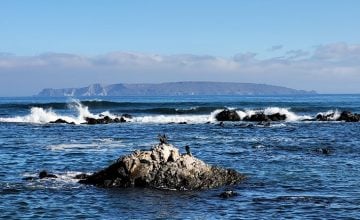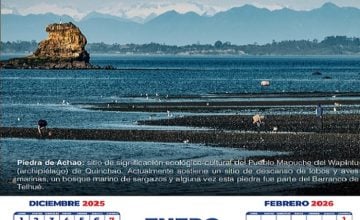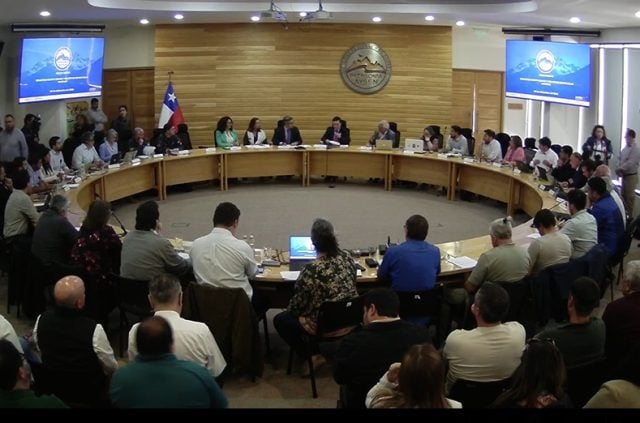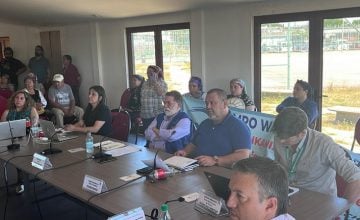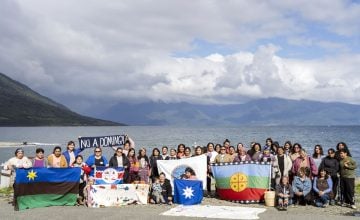Original article: Isla Meulín teje importante red comunitaria entorno a un Espacio Costero: Inclusión de organizaciones define inédito acuerdo de gobernanza colectiva
Isla Meulín Charts a Course for Collective Coastal Governance Surrounding a Coastal Space
Six organizations from Isla Meulín voluntarily join the ECMPO, forging an inclusive coastal management approach that preserves ancestral uses, fishing, and education, under the protection of the Coastal Spaces Law for Indigenous Peoples. In December, new island organizations will join as future users of the coastal space with inclusion agreements.
On November 4, Isla Meulín, located in the Quinchao municipality, witnessed the culmination of months of collaborative efforts with the signing of a historic community inclusion agreement. This accord integrates six local organizations into the upcoming management plan for the Coastal Marine Space for Indigenous Peoples (ECMPO) titled «Isla Meulín.»
The participating communities, including El Tránsito, Waywen, and San Francisco, alongside local boat operators of the vessels «María Eugenia» and «San Francisco III», the CECOF of Isla Meulín, the «Mi casita de amigos» kindergarten, the Isla Meulín Rural School, and the Parents’ Center, have entered into a voluntary inclusion agreement. This agreement solidifies a collaborative working group that will oversee future coastal space management.
Felipe Miranda from the Heritage Study and Conservation Center (CECPA) underscored the significance of the initiative. He noted that the plan “will consider and safeguard, among other aspects, boat repairs, anchoring, navigation, shellfish harvesting, artisanal fishing, diving, seaweed drying, shoreline collection, fishing-related activities, conservation, and education.” Miranda emphasized that this move “certainly sets a substantial precedent for local governance and voluntary participation by indigenous communities and related organizations.”
Alejandra Lleucún, a leader from the indigenous community of Isla Meulín, elaborated on the process: “As an indigenous community, we have managed to bring together leaders from each of the organizations on our island to sign voluntary inclusion agreements for future users of our ECMPO Meulín.” She confirmed that “on November 4, six inclusion agreements were signed with the San Francisco School, SECO, the Kindergarten, the Parents’ Center, and the operators of both the San Francisco and María Eugenia boats.”
“For us, this is a very significant step, as it has been well received and understood by the organizations involved,” Lleucún stated. She emphasized the importance of collaboration: “The goal is to work together with all the organizations on our island and include all groups in our ECMPO Meulín initiatives,” extending her gratitude to other leaders and organizations for embracing this achievement.
This initiative falls under the Coastal Spaces Law for Indigenous Peoples (Law 20.249), established in 2008, which is vital for protecting the customary rights of indigenous communities in Chile. The legislation promotes sustainable and collective management of coastal areas through the establishment of ECMPOs, fostering both cultural and environmental conservation.
Quinchao Mayor René Garcés Álvarez commended the indigenous organizations of Isla Meulín “for uniting to formulate the future management plan for the coastal marine area for indigenous peoples (ECMPO) in this insular region of the Quinchao municipality,” adding, “This reflects the spirit of the law and the willingness of organizations led by their leaders to advance local community governance in protecting and safeguarding the territory, where the intent and understanding regarding the Lafkenche Law request have once again positioned the wisdom and values of the ancient inhabitants, asserting the rights recognized by Law No. 20.249, marking this collaborative understanding in the island and territorial framework.”
It has been reported that additional organizations from the island will join in December as future users of the coastal space with their inclusion agreements.
Thus, the ECMPO Meulín illustrates that collaboration is essential for strengthening internal governance and promoting community inclusion. With education and the student community as fundamental pillars, this collective effort highlights the importance of safeguarding and caring for the environment, aiming to enhance the living standards of its residents while constituting a model in Chiloé for the positive impact of legislation that empowers coastal communities to preserve their heritage and build a future in harmony with their surroundings.

